Quatrefoil Ecclesiastical Design – Part 2
Quatrefoil Ecclesiastical Design – Part 2
A few days ago I shared a post on Ecclesiastical Machine Embroidery. The design worked in a quatrefoil border on silk dupioni, which will need to be applied to the base silk fabric. To accomplish this, the raw edge of the fabric has been turned under, and stitched in place to the wrong side of the design. The quatrefoil applique was then stitched on place on the silk garment.
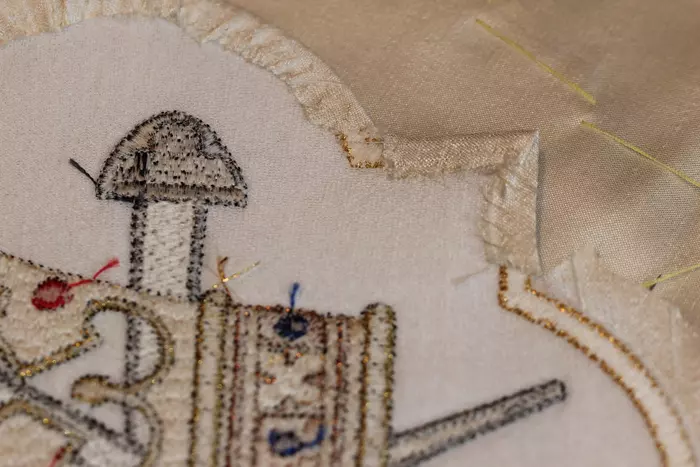
There is a tiny lip of white fabric still sticking out at the very edge, past the machine-embroidered frame. In the photo, that tiny white edge looks huge because of the macro photography. In reality, the edge is minimal and easily covered by the two strands of gold twist.
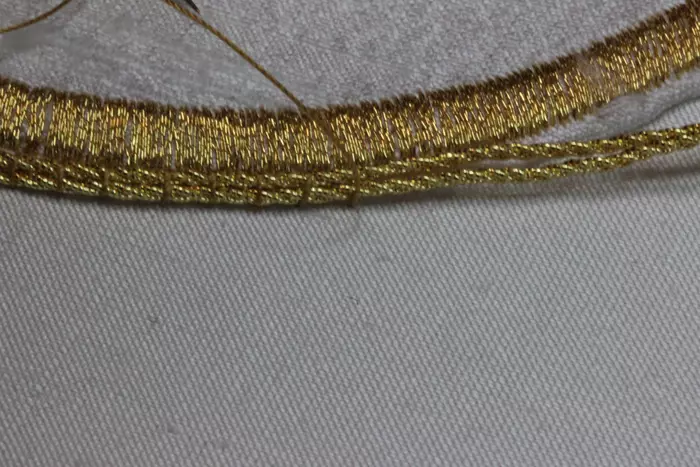
I realize I might be “breaking the rules” hereby couching two strands of Gold Twist at once. I thought about this and tried several other options, but the double strand of twist is the perfect size to cover that little edge of white at the fold.
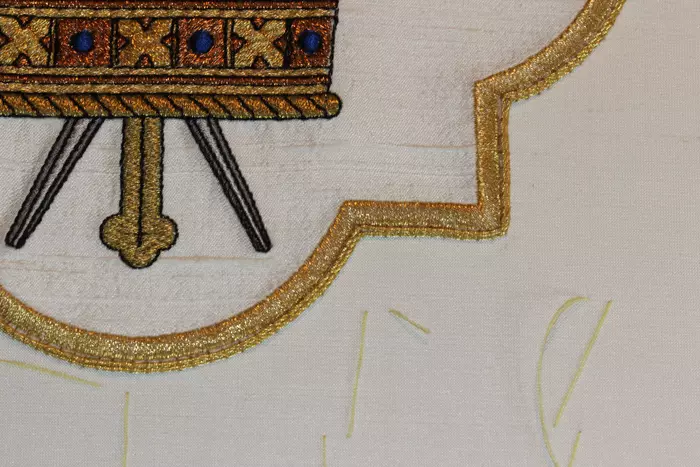
One of the tricks in making the edge look nice is to keep the couching stitches evenly spaced and perpendicular to the gold twist. This is something I struggle with. While stitching this edge, I paid careful attention, and it appears to have worked out well. The other thing I did not remember to do was to wax my silk couching thread with bee’s wax. I thought about it before starting, to remind myself, and forgot in mid-session.
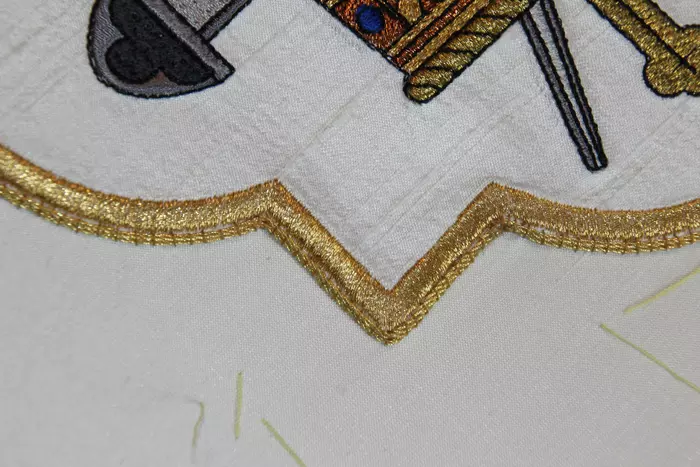
Turning the corners on the goldwork Twist Thread is a bit of a challenge, with making sure to hit the exact point of the corner and getting the twist in a nice square corner. It worked well, but there is room for improvement.
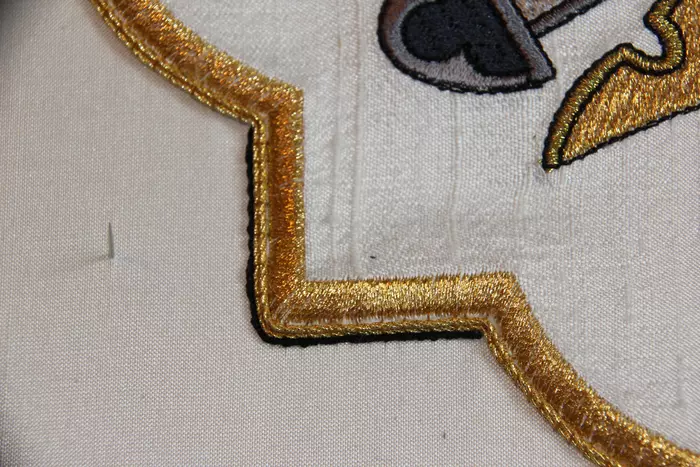
The final step is to add an outline of black silk twist worked in a stem stitch. The use of black creates a: shadow” effect at the edge. When the black outline is finished, there will be five more quatrefoil motifs to prepare. The sad news is that the supplies to finish the project have hit a delay in shipping from the UK. I doubt this will be ready for Easter.
On a side note, I must give credit for the beautiful machine embroidery to a friend, Sue. Thanks, Sue! The design is stunning!
Solo Dei Gloria
Be sure to visit our online store front Ecclesiastical Sewing where you may shop for Liturgical Fabrics, altar linen fabrics, church vestment-making patterns, liturgical machine embroidery designs, church vestment trims and notions and so much more. You may also find us on Ecclesiastical Sewing on Facebook, Twitter, and Pinterest. Sign up for our mailing list at the bottom of the page on our online store front and receive a free copy of our Small Linens Booklet as our way of saying thank you for following along.
The Ravages of Time on Ecclesiastical Vestments
Ecclesiastical Vestment Pattern Making
Gilt Twist Goldwork Threads for Hand Embroidery
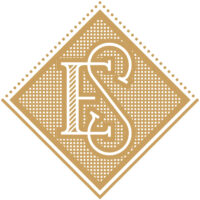





 RSS - Posts
RSS - Posts
I think the gold twist was exactly what was needed here. It adds a beautiful textural contrast that you would not get with Japan gold. The black silk twist really makes the edging pop! It’s one of the beautiful details that no one ever really sees, but that make such a difference in the finished work.
Yes, I learned the trick of adding the black, or a dark outline from looking at the embroideries at a monastery where I volunteer. The dark outline makes a difference in defining that edge and making it visible from a distance. Also, using the gold twist adds the illusion of a little dimension and height to the quatrefoil.